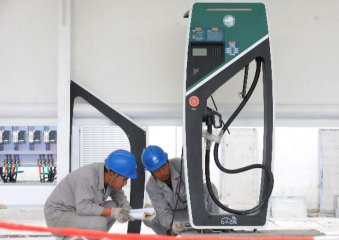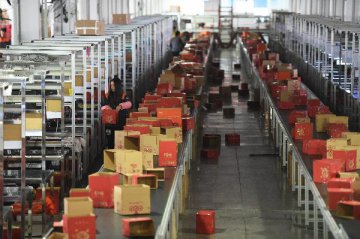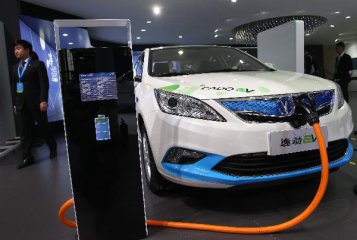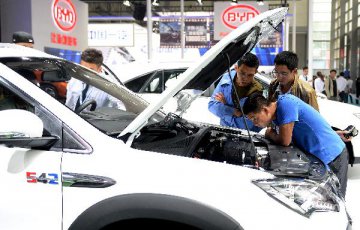
China is showcasing environmentally-friendly mass transit at a transportation trade fair that opened Wednesday in Colombia's capital Bogota.
The four-day 2015 Cargo and Passenger Transport Fair (Fitrans), being held at the city's Corferias exposition center, features China's latest technologies in reducing both air and noise pollution.
Representatives from Chinese multinationals Higer and BYD, bus and vehicle manufacturers, are presenting passenger buses tailored specifically to the streets of Bogota and its "Transmilenio" mass transit system.
Fitrans' Twitter account featured photos of a "100 percent electric" Chinese-built bus brought over by BYD, as well as a talk on designing public transport by German-born Gregor Wessels, whose company Infratrans Consultancy Limited advises the Hong Kong metro.
China's brisk production of electric vehicles has placed the country's automotive industry ahead of the world's largest, including Europe, Japan and the United States. Higer, China's second-largest vehicle manufacturer, aims to break into the Colombian market with a hybrid-electric bus that helps combat climate change with its low fuel consumption.
Alan Ma, manager of Higer Colombia, told Xinhua recently the company aims to become Bogota's strategic partner in improving mobility through "clean technology" that cuts greenhouse gases, such as carbon dioxide (CO2), which result from burning fossil fuels like gasoline or diesel.
"It's a hybrid bus with new clean technology that we brought from China to participate in Bogota's Technology Advancement Plan," said Ma. "We designed this bus to meet the ... Transmilenio system's needs ... our bus has been designed precisely for this city," he added.
Studies show that replacing 30,000 diesel buses with hybrid or electric vehicles could eliminate as much as 3.3 million tons of CO2 from entering the atmosphere, and save nearly 300 million gallons of fuel over a 10-year period, said Ma.
Bogota's transit system comprises some 2,000 standard buses that belch out pollutants day and night as they serve the city's 8 million residents. "This hybrid technology has two motors, a diesel motor that works solely as an electricity generating plant; it doesn't move the bus," explained Ma.
"The bus has another electric motor, which is the one that moves the bus. When the bus breaks, it does so with the electric motor. That's where it recovers the energy to start again and that's where most of the savings are." China's BYD, meanwhile, has brought a 100-percent electric bus that is already in the testing stage, running along one of Bogota's public transport routes.
Called Ebus Andino 18, the ample passenger bus is totally environmentally friendly, says BYD Colombia representative Lara Zhang, and much more economical to run compared to standard diesel buses, taking into account fuel, spare parts and operational costs.
There is already a fleet of 50 electric taxis in Bogota, as part of a pilot program run by the city government, a sign Colombia's leaders are willing to embrace new technologies, not just to improve the urban environment, but also to benefit from the savings these vehicles represent.
The Chinese electric buses, for example, can run 400 kilometers after being fully charged, while standard combustion engines go only about 280 kilometers on a full tank. BYD Motor Colombia General Manager Pedro Cardenas says Colombian buyers are initially wary of the difference in price between conventional and green vehicles, but the latter are more economical in the long term.
"The total cost of ownership (TCO) of an electric articulated bus over 15 years of operation is lower than the TCO of a diesel bus, including the acquisition price, battery, maintenance, fuel-energy consumption, operation and infrastructure," said Cardenas.
Zhang believes converting from conventional to hybrid or electric vehicles should be a priority for governments. More than 5,000 buses and 15,000 taxis manufactured by BYD are in operation around the world, including in Europe and the United States, underlining the company's experience in the field.
Her company, she said, has been helping to promote the switch to cleaner technologies in Colombia since 2012, when BYD first launched its strategy in Latin America, where today it has a presence in Peru, Panama, Ecuador and Brazil. Though these markets are still small for hybrid and electric vehicle makers, they hold great potential, she added
























Latest comments